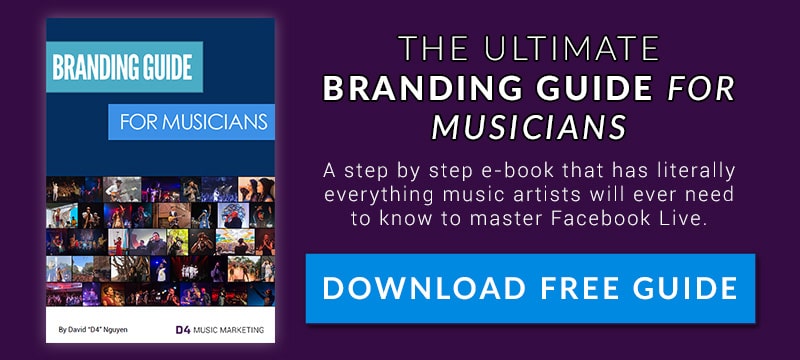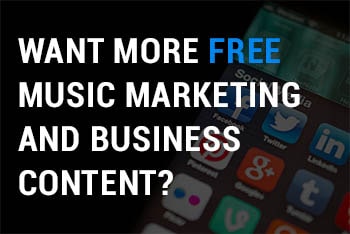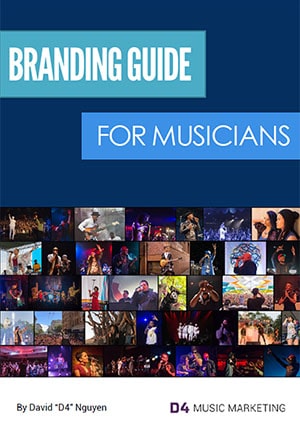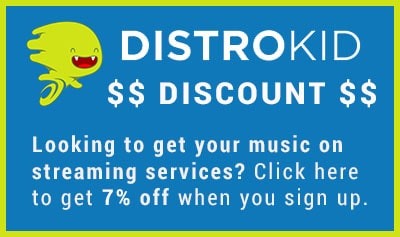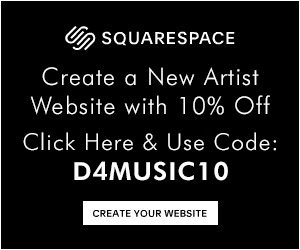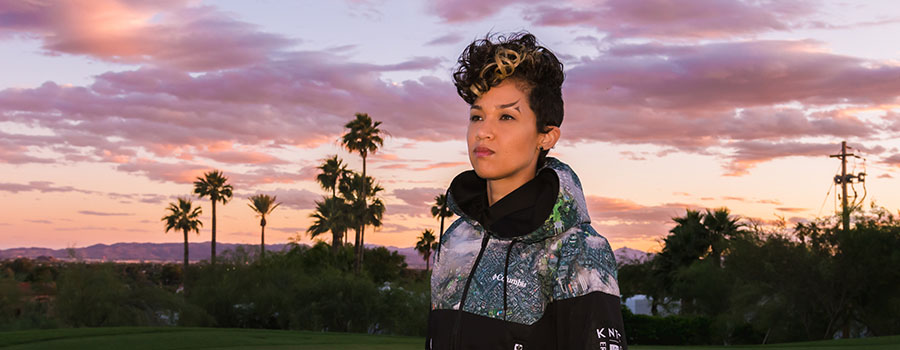
One of the common challenges I’m noticing artists have about branding is figuring out that one thing that sets them apart from everyone else.
You hear it often in regard to branding. I have even said it in my previous blogs. Because there’s so much competition for attention in the digital era, you have to be able to distinguish yourself to stand out. You need to find what is “unique” about you.
I realize now that this could be misunderstood.
Yes, the concept of branding is to essentially distinguish yourself as unique compared to others… at least to public perception.
However, you shouldn’t have to figure out what makes you unique.
The fact is you are “technically” unique as you are. No human, even if you have an identical twin, will ever share the exact same combination of life experiences, social interactions and genetics as you. Does that automatically make you interesting and special as an artist?
Probably not – which is why you’re here. But the way I see it, the focus should be less about figuring out what is “unique” and more about how you will stand out and appeal to specific people who find you interesting.
For the third part of the branding series for musicians, I will address 7 key points about this idea of uniqueness in branding and why you should rethink it.
1. Your brand can be multifaceted.
Some of the artist questions I’ve been getting emails about have to do with figuring out that “one thing” that will make them super unique and interesting. Theoretically, for the sake of simplicity and clear communication, a good brand tends to have “one thing” that stands out and sticks in people’s minds. That one thing makes it easier to set expectations about who you are.
At the end of the day though, we are all multifaceted people. Some people, even within your target audience, will resonate more with different aspects or identities of you than others.
You can explore different parts of you to see what sticks for your branding. Don’t get caught up with this idea that you have to have this “one thing”. It will help to highlight or focus on one thing as a priority, but every artist is different so see what works best for your circumstances.
2. You’re unique, but your branding angle isn’t.
When it comes to defining your brand, what you choose to highlight is rarely ever going to be truly unique. Don’t get caught up in finding that one perfect thing that no one else is. When it comes to that branding angle, it’s okay to be like so and so. There are a lot of artists who are potheads (Snoop Dogg, Wiz Khalifa, Cypress Hill) or have dealt with drug addiction (Macklemore, Eminem, Eligh) at the forefront of their brand. This shouldn’t stop you from going in that direction if that is true to who you are and it supports your goals as an individual.
You can approach different angles by combining them in some creative way. Just saying you are a rapper or singer-songwriter from so and so is pointless. Don’t be afraid to be more fine-tuned with your niche. My good friends AstraLogik are a music duo who are Filipino, gay and life partners with each other. Their brand is a mixture of these things that make them unique and multifaceted.
Branding isn’t always just about what you are or what you’ve experienced. It could be based on the creative, political, economic or social pursuits you are working towards. If you care about social issues like homelessness, your brand could be based on opening up your own homeless shelter. It could be based on things you are working towards, which can make for an interesting story.
It could even be based on presenting your music creatively like Tierra Whack did with her album Whack World.
Some people fall into a branding angle much easier because they do have some really interesting life experiences that make it natural. Good examples are Slick Rick and Black Violin. For others, it can take time to develop. This leads to the next point.
3. What makes you unique will take time.
Establishing your brand identity is the foundation of building yourself as someone who is unique. The reason why I feel you shouldn’t obsess over that “unique” angle earlier on is that I believe that it can take time for your “uniqueness” to manifest.
Yes, you do need to eventually be able to build your brand in a way that is distinguishable and somewhat unique. However, there shouldn’t be pressure to do so right off the bat, especially if you’ve only been in music for less than a few years.
It’s possible to stumble into some life event or opportunity later that may redefine your brand.
Your brand identity can and should be a work in progress. Even with a good brand, you still need patience. Just because you’re not famous in 2 years, doesn’t mean you’re not unique enough. Trust the process!
4. The sole purpose of branding isn’t to be different.
Sure, one big part of branding is making yourself distinguishable. But you aren’t establishing yourself as this super unique artist just to be different. The goal is to stand out AND draw people into you as a brand they resonate with.
The other part of branding is to develop a deeper emotional relationship. This is often done by doing the opposite of being “different,” which is showing how you are similar to those you want to reach. After all, presenting yourself as someone who is relatable is what helps people feel more connected to you.
5. Don’t overthink it or try too hard. Ask for help.
A good brand isn’t one that is the most unique so don’t get stuck on trying to be so different. If you’re overthinking it, then it’s probably not going to be natural.
I had an artist reach out to me who had trouble figuring out his brand because he felt there was nothing interesting about him. I had him fill out my brand assessment questionnaire (coming soon) and learned he had a bunch of interesting angles that could be taken.
This is why something like self-awareness is important. You might not think you are interesting, but sometimes you’re not the best judge of that. Try getting an outsider’s perspective and ask people you know what they think may be interesting about you.
6. Don’t just state it, follow through and live it.
It’s one thing to say you’re this and that when defining your brand, but it’s another thing to show and live it. Branding is less about what you say you are and more about what people see and hear.
If you say you are a mental health advocate or a political activist in your bio, make sure the content you push on your social media channels shows it. A big component of branding is creating and maintaining a public perception that reflects an authentic part of you. This is why it can take some time as well to develop it. Branding isn’t something you set and forget.
Branding is about owning your narrative. It’s highlighting what makes you who you are and embodying that in everything you do. What ultimately will make you unique is how you transform that angle into your own.
When you are figuring out your brand, you’re trying to set a foundation and an expectation for others. That can be difficult in itself, but the harder part is you have to live it, which is why it should be authentic.
7. Branding alone isn’t going to save you.
To expand on the first point, I get the sense some artists get too obsessed with finding that one unique thing. They feel it’ll make or break their career. Just like talent alone isn’t going to carry you. You still need to have talent, put in the work and create amazing music. Super cliche but it’s true. Success involves many factors so don’t let this aspect of your brand slow you down.
I stress branding as being massively important in today’s climate, but it’s not the magic pill. Figuring out that one branding angle isn’t going to magically take your music to the next level. Your main focus should be on making music.
Branding is a long term investment, not a shortcut or a tactic.
Conclusion
If you found this blog useful, check out my Branding Guide for Musicians eBook. I took my ‘Basics of Branding for Musicians’ blog series, rewrote parts of it and combined them into one convenient guide. I also included a branding workshop section to provide further help in establishing your brand that you can only find in this eBook.
